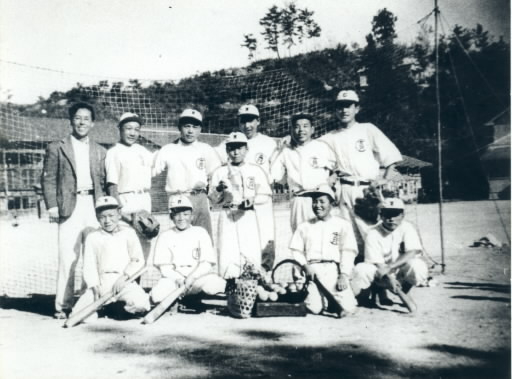The "Moral Adoption" of Hiroshima’s A-bomb Orphans, Part I [3]
Feb. 1, 2009
Letters written by American citizens and Japanese children: Gifts encourage communication
by Akira Tashiro and Masami Nishimoto, Staff Reporters
It was an era of shortages all over Japan. Gifts, sent along with letters, were the most tangible sign of communication the children in the Hiroshima War Orphans Foster Home received from their “moral parents” in America. Letters between a woman, a widow, from a small eastern U.S. state and a 13-year-old Japanese boy provide a piece of this story:
“I sent you some clothes. The heavy jacket is made so you can wear it either side out and it’s waterproof on both sides. On very cold days here boys wear them shiny side out, and they wear them that way to dress up. By November I have to send your Christmas and birthday presents so you should write and tell me what you want. If I don’t get them in the mail by November 1 they won’t reach you in time.” [By a housekeeper, on August 29, 1951]
“Dear my mother, I received your package on October 1. The package contained the jacket, shirt, and sweater, which you mentioned in your letter. Now in Japan, clothes are very expensive and we have trouble getting clothes for winter. The jacket is so fine and I can wear it both sides. We can’t get such a fine jacket in Japan.” [By a first-year junior high school student, on October 1, 1951]
A 14-year-old girl received gifts that included a ball of yarn from her moral parents, an American couple who were both electrical engineers and lived in California. The girl replied with excitement:
“I was so excited that I had trouble undoing the string of the package. When I opened it with the help of my friend, a ball of yarn in my favorite color first rolled out. Then I found a pretty doll with big eyes. I’m looking forward to knitting a sweater out of the yarn and wearing it this winter. When I put on the sweater, I’ll have my picture taken and send it to you.” [By a second-year junior high school student, on August 23, 1951]
The packages and money from the Americans arrived mostly on the children’s birthdays and on Christmas. The children received clothes, shoes, baseball equipment, dolls, chocolate, and candy. One child even received a camera. A boy who received 25 dollars on his 13th birthday--about 9,000 yen at the time--wrote a letter to his moral parents in Ohio expressing his gratitude.
“I don’t know how to thank Father and Mother for sending me such a huge sum of money. I’m feeling very bad for Father, who is already 51 years old and working for a railway company. I know you are worried about how much money I need for a year. But I am happy enough to have you as my father and mother, because I was all alone.” [By a first-year junior high school student, on February 25, 1952]
In return for the gifts they received from their moral parents, some children bought small presents for the Americans by saving their allowances. One girl bought a handkerchief for her American mother for Mother’s Day when she visited Kyoto on a school trip. The woman, who lived in the U.S. state of New York, wrote to the girl about her joy at receiving this gift:
“This time I have to write to you by airmail because I want you to know as soon as possible how pleased and happy I have been since your letter with your beautiful present for Mother’s Day arrived. I really was so moved and happy that you thought of me when you were on a trip and that you remembered Mother’s Day which then was still so far away. The handkerchief is very, very pretty and I have it now in a little glass cupboard with other things which I treasure, so that everybody can admire the present from my dear little daughter.” [By a housewife, on April 30, 1951]
These gifts further deepened the affection felt between the American citizens and Japanese children and influenced the number of letters they exchanged. Meanwhile, some children got very few presents from their moral parents. To these children, the gifts that their friends received stirred envy and a sense of loneliness.
Keywords
Wages and prices in 1952
The starting salary for an elementary school teacher was 5,850 yen a month, while that of a higher-level civil servant was 7,650 yen. A bun filled with bean paste was 10 yen. A movie ticket cost 80 yen. A bottle of top-quality whisky was 780 yen. An encyclopedia of 26 volumes was 17,160 yen.
(Originally published on July 15, 1988)








